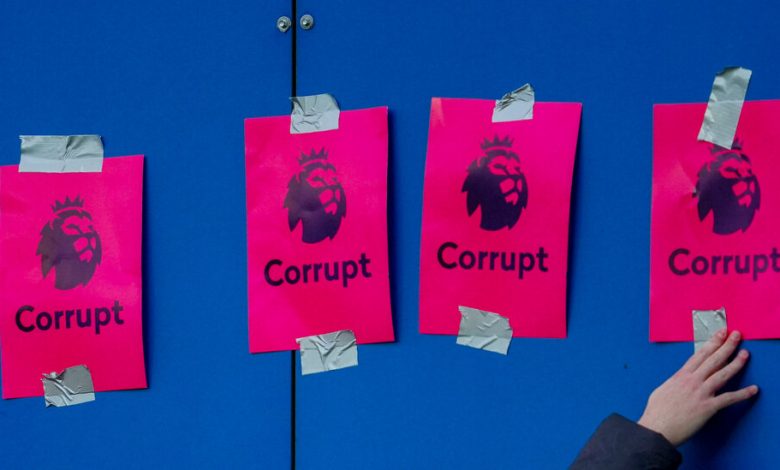When the Stands Speak, the Premier League Should Listen

The referee’s decision was, by the standards of these things, pretty straightforward. Soccer in general and the Premier League in particular have a gift for spinning controversy from whole cloth, but this did not seem an especially compelling candidate for the hot-take treatment. The evidence was too clean, too clear-cut.
Early in the Premier League game between Sheffield United and Brighton last month, the Sheffield United defender Mason Holgate went careering into Kaoru Mitoma, Brighton’s dazzling winger. The referee, Stuart Attwell, showed Holgate a yellow card. A moment later, Attwell was advised by his video assistant, Michael Oliver, to take another look at the tackle.
The replay showed Holgate’s right foot crashing into Mitoma’s thigh. (The ball, for context, was very much elsewhere.) Mitoma’s leg crumpled with the force of the blow; he was still, even as the referee reviewed the video, writhing on the turf. Attwell reversed his decision and sent off Holgate, who seemed hurt, dismayed, baffled. You had to admire the chutzpah.
That this turn of events — and the prospect of seeing its team play a majority of the game at a disadvantage — outraged the crowd packed inside Sheffield United’s Bramall Lane stadium does not count as a surprise. The spectators had not seen the replays. It is most fans’ avowed belief that any decision that goes against their team is incorrect.
What was striking, though, was the shape their displeasure took. They applauded Holgate as he left the field. They spent the rest of the game jeering Mitoma’s every touch. But they also gave long, loud and expletive-ridden voice to their belief that the whole incident proved, once again, that the Premier League was incorrigibly corrupt.
It is tempting to stress-test this allegation by asking two simple questions. No. 1: How would the Premier League’s corruption entice Holgate into making a dreadful tackle? No. 2: Why would the Premier League be corrupt to the detriment of Sheffield United?
